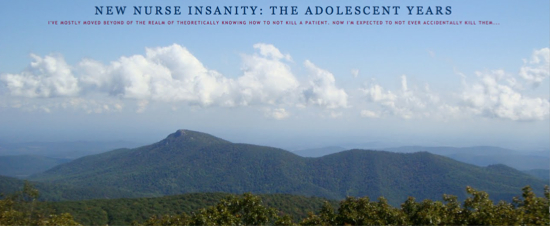Sep. 9th 2011
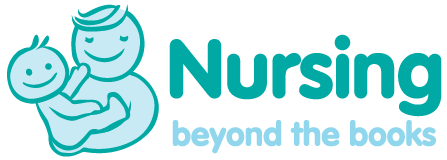
Our fourth installment of this ten-part series talks to Lovlei McKinnie, a popular nursing blogger who has been expressing her ideas at The Dog Ate My Care Plan for more than two years. Her bio states: “I’m a 30-yr-old mother of three and wife to one. I am a senior nursing student in an evening/weekend BSN program (still working FT) and will graduate December 2011. Be nice to me…I may be your nurse some day!” As a participant who is also currently a senior nursing student, Lovlei offers a unique perspective.
The bold statements are taken directly from her posted works, followed by our questions and her responses.

The Kaplan review course that many people like to take before they take their boards (it’s actually required for my program) is actually less about content review and more about how to be a better test taker. It’s all about strategies for breaking down the questions and recognizing traps. In testing your way up to becoming a practicing caregiver, do you find that the book tests or the practical skill tests are the most challenging and why? In addition to becoming a better test taker, are there any other lessons you have picked-up that might help a nursing student know what to expect?
I would definitely have to say that book tests are more challenging. Practical skill tests (or “check-offs” as we like to call them) are simpler because they are pretty much just memorization of sequential tasks—after A comes B, then you do C. But quizzes and exams involve application and critical thinking. You will never see questions on a nursing school exam like “What is pneumonia?” or “What is normal blood pressure?” You just don’t get simple, black or white, definition-type questions on nursing school exams. And there usually aren’t true or false questions either because in health care there’s always usually an exception to the rule. What you will see is something along the lines of: “While assessing her 70-year-old patient admitted with pneumonia, Nurse Flo auscultates his blood pressure to be 165/72. Which of the following does she consider to be an age-related change contributed to this finding?” followed by a list of conditions/symptoms. This type of question requires that I realize first off that the patient being admitted for pneumonia is extraneous information I don’t need to answer the question; that I already know the normal range for blood pressure so that I notice that Flo’s patient’s systolic blood pressure (top number) is elevated; as well as being aware that a change frequently seen in older adults (such as a 70-year-old) that would increase the risk of systolic hypertension is a loss of elasticity in the arterial walls (which was the answer). To arrive at that point I had to pull from knowledge of pathophysiology (specifically age-related physiologic changes) and etiology, know normal ranges for vital signs, all while weeding out distracters—from the stem as well as the answer options. There’s definitely nothing “wham bam thank you ma’am” about nursing school exam questions at all.
That’s not to say that skills check-offs are exactly cake. Whereas in an exam situation even though you’re in a room full of people you’re sort of by yourself—alone in your concentrative bubble, hovering over your Scan-tron. But when you do check-offs, oftentimes all eyes are on you so there’s a certain pressure to perform well or risk looking stupid or being corrected in front of a crowd. Sometimes the nerves alone will have you stuck on stupid. But I look at it like this: we’re students; we’re not supposed to know it all. That’s what we’re here (paying good money) for—to learn and to practice. Your professors and clinical instructors are resources—use them. Besides, better to get it right now than to go out into the world experimenting on patients…
And not to sound cliché but “practice makes perfect”—in and out of the classroom. Doing NCLEX practice questions will help you get used to the complexity of nursing school questions. It’s an adjustment from the straight-forward or simple recall type of questions most students are used to. And take advantage of any “open lab” hours your school offers to brush up on your clinical skills—it can really help build your confidence.
Part of the problem is I feel like we do a lot of stuffing and dumping every semester—we focus on and study what we need to know for that particular class and then that knowledge gets neatly tucked away in some obscure corner (hopefully of the mind and not of a bookshelf). As more time passes and your hands-on experiences in the hospital increase, are you finding more of this information does come into play – or were you right, it is a case of stuffing and dumping a lot of “book” learning that does not get applied in an obviously practical manner?
Surprisingly, you remember a lot more than you think you do—especially when it’s put into use. Nursing school is sort of like baking a cake—you get a bowl, add butter and sugar (stir), beat in the eggs (stir), dump in the flour (stir), lastly some milk (stir), then pop it in the oven and out comes a cake. In nursing school you start out with raw, scared out of their wits students and little by little you build them up—start out with a little history and theory, introduce the components of the nursing process (good ol’ ADPIE), slip in disease processes and management, add in some clinical skills…and out comes a nurse (well just about). I’m oversimplifying, there’s a little more to it than that, but you get my drift. All the while during this process new learning builds upon what has been previously learned and over time increases in difficulty and complexity. These “layers” of the nursing school cake are what help seal in the flavor so to speak—the remembrance. Now you have all of this knowledge, all of these concepts and theories and skills, but it really doesn’t “click” until you put it to work. When you are able to take what has been learned in the classroom and actually apply it in the clinical setting—that—is the icing on the cake. Now I don’t know about you but I always remember the icing on a cake—that’s what I’m licking off each finger. So while you may not remember that the American Nurses Association was previously known as the Nurses Associated Alumnae or that it was started in 1898, most the of truly important stuff, sticks.
Nursing is one of those fields where you truly never stop learning. There are always new meds, new equipment, new best practices… To all of those that have come before me—how the hell do you retain it all?!? You mention using mnemonics to help remember things, so are there some specifics that you devised personally that might help others? Are there any other tricks or techniques you have developed to help you stay on top of it all, and not be overwhelmed?
As I’ve said before—mnemonics are your friend! Not only are they fun, but they work! I haven’t created any personally but there are plenty to go around. One of my all-time favorites (and one I will never forget) is one describing the side effects of anticholinergics—”Can’t see (blurred vision), can’t pee (urinary retention), can’t spit (dry mouth), can’t sh!t (I think you can figure that one out…).” I talk about a few others in my post VEAL CHOP.
Once you figure out what type of learner you are you can really hone in on what will help reinforce what you are learning in class and clinical. Visual learners may find outlines (and most professors do use powerpoints), diagrams or pictures of complex concepts such as the renin-angiotensin-aldosterone system, or color-coded pharmacology flashcards helpful. On the other hand, recording lectures for playback later may work for more auditory learners. I like to record lectures on my iPhone and then listen to them during my “downtime” (imagine a nursing student having any of that!)—in the car, while I’m washing dishes, etc. Trust me you’ll hear things you didn’t the first time around during lecture—you may have been taking notes, digging through your bag for a pen, texting (as if!), or whatever. And then there are tactile learners who learn best by doing. These students can benefit by spending extra time in the lab (or meeting up with other students) practicing their skills or volunteering for additional hands-on experiences at clinicals.
And then there are some people (myself included) who don’t just fit into one category so you may need to mix and match–whatever works. Different strokes for different folks as I like to say.
Just remember to be patient with yourself—it may take a little while to find out what works best for you. And be prepared to tweak your routine—what works for one class may not work for another and you may need to adjust your efforts from semester to semester.
We finally had orientation which gave me a little taste of what I should expect for the next two and a half years—total and complete information overload. If a would-be nursing student wanted to do a little prep work, is there anything you could suggest to try to reduce the impact this information overload? How do you tend to handle it now, and does it remain as daunting as it first appeared?
Some aspects of nursing—such as the critical thinking piece—are a little harder to prepare for. It’s a new way of processing information for most people and it takes time and practice to master.
But one thing that an incoming nursing student could probably benefit from reviewing that many people usually do not think of is math. No fancy calculus or trigonometry, just a few of the basics—fractions, decimals, and systems of measurement (metric, apothecary, and household). This is in preparation for a very important element of nursing school that freaks most students out—med math. Med math will have you sweating like a menopausal diabetic with a blood glucose of 45. It’s not so much that the math itself is that hard because it isn’t—especially if you use dimensional analysis—once you know your conversions it’s pretty much impossible for you to fudge it up. But it’s the fact that a mistake—something as simple as erroneously moving the decimal one time to the right overdosing a patient with ten times too much medication—could potentially cost them their life. The seriousness of pharmacology and drug calculations is why most nursing programs administer periodic med math tests. Students are required to pass these exams with at least a 90% (some programs demand a perfect score) or face not being allowed to administer medications in the clinical setting, failing the class and/or clinical, or even being removed from the nursing program altogether.
As far as dealing with information overload, for the most part you’re always going to feel like you’re in it up to your eyeballs—that’s just what nursing school is. But when you get to “that” point, you have to learn to take a step back. Sometimes I’ll push myself so hard, up late studying until the wee hours of the morning telling myself “just one more hour.” But I’m at the point where my eyes are just glazing over the words but my brain is not registering any of it. I have learned to tell myself, I say, “Self. Enough is enough. Time to close the book and go to bed.” And that’s what I do. Being driven and persistent are both good qualities, but too much of a good thing can be a bad thing (wu ji bi fan). And so I have learned to set limits with myself into order to avoid driving myself into the ground.
One of the most basic things nurses and nurses-to-be need to recognize is that in order for you to be able to take care of others, you must first take care of yourself. Get adequate sleep—or at least take naps. Eat breakfast. And lunch. And dinner. Take study breaks. Go for a walk. Get a mani/pedi—or do your own if that’s not in the budget. And for goodness sake—learn how to say NO! I cannot tell you how important that is. Most nursing students—especially those with jobs and families—already have plates that runneth over, don’t make it worse by biting off more than you can chew.
With 4 more semesters to go, it kind of makes you wonder if that person sitting next to you now will walk with you at commencement. Nursing school really is survival of the fittest. Doing well in class is a given, but what else have you seen that helps to make a nurse one of the survivors? How does one “toughen-up” to prepare for what is coming?
First things first—you need to be sure that nursing is really what you want to do. A lot of people get sucked into the nursing media hype—the ginormous advertisements with nurses smiling ear to ear…the so-called abundance of job opportunities due to the nursing shortage…talk of how the pay is so great… But the not-so-shiny parts of nursing don’t seem to get broadcasted—the difficult patients (or families), the stress, the physical demands, the long shifts and rotating schedules, the sometimes having to watch people die. Often people drop out because they discover a few months into class and clinicals that they hate it. Nursing is definitely not for everyone. But sometimes people are so mesmerized by the nursing castle in the sky that they truly don’t understand what nursing really is until they’re in the thick of it.
Sometimes you have to change your mind set. With nursing school admissions being as competitive as they are, you get a lot of the cream of the crop—many of the students come in the door with GPAs at or close to 4.0’s and plan to keep them that way. But in nursing school perfectionism can be a double-edged sword that can either motivate you to succeed or chop off your legs bringing you to your knees. You have to come into this based in reality—know that it’s going to be hard work, know that you’re going to have bad days (and good ones too!). These are not the prerequisites anymore–this is a whole different animal. You may have to let go of that I-gotta-get-an-A (every time) mindset. I was one of those people. My first B+ hurt me to my soul. After the initial shock wore off I had to regroup and jump back in. You have to keep it moving. I’m not saying not to set high standards for yourself, just do your best—that’s all anyone (including yourself) can ask of you. But with that said, I do not subscribe to the whole “C = RN” mentality…
And lastly, you have to be organized. Organization is crucial. Whether it’s a planner, iPhone app, stickies—whatever works. Find a system that works for you. With so much to read, care plans/case studies/projects to do, clinical work to keep track of, and quizzes and exams to take, it’s easy to fall off the bandwagon. And it’s even easier to stay there if you’re not careful. But if you do happen to find yourself behind, first, take a breath. If you let frustration set in, it’ll be even harder to get your rhythm back. Next, assess the situation. Are you behind because you just had to go to that party last night and then came home too tired to study or is it because you keep being distracted by the kids, the dog, or the dirty dishes in the sink? Figure out what you can do differently to try and alleviate the problem and then do it. Did it work? If not, reexamine the situation and try something different.
Hey, and by the way–we just walked through the nursing process—assessment, diagnosis, planning, intervention, evaluation. Go nursing!
There’s more than one way to skin a cat—or give a Z-track injection, insert a Foley catheter, or just about any other clinical skill. And the way it’s taught in the textbook may or may not differ from the way the clinical instructor will show you that they do it “in the real world.” Have you found that there is a great variance in the way people perform these types of tasks or does efficiency kind of trump everything – so generally speaking, there is going to be a “right” way to do it? How much of this is personal, compared to how much is answering to a superior or hospital rule?
I think this can be attributed to a number of things—efficiency, personal preference, even “old school” vs. “new school.” And practices and policies are constantly changing. As well they should—nursing is all about evidence-based practice these days.
I also wouldn’t say there’s a great variance in the way things are done, but just think about think about if it were a drug calculation—a small variation could have a big impact on the patient. Sometimes it’s an education thing—nurses need to be educated as well.
For instance, recently it was asked if nurses needed to alcohol swab single-use vials after popping off the tops. Some argue no—that the vials are sterile under the cap so swabbing is unnecessary. Others argue yes—that the cap is just there to protect the top of the vial, but does not ensure sterility. And still there are others who are from the “swab everything” camp, who figure why not—it can’t hurt. I am still not sure what the “official” answer is on this one…
And once in clinical it was asked if we do indeed need to wipe off the first drop of blood when doing an Accu-Chek. According to Accu-Chek themselves discarding the first drop of blood is unnecessary, but the policy of the hospital where we were assigned dictated to do so and that trumps the “FAQs” of the meter’s manufacturer—so we wiped off the first drop of blood when we did our Accu-Cheks. When in doubt always check the hospital’s policy, which to make things even more confusing, often differs from place to place.
If you can’t take the heat, nursing school is definitely one kitchen you want to stay out of. Nursing school is NO JOKE. Add kids, jobs, and LIFE to that—and you’d better be prepared for some blood, sweat, and tears. With three children and a husband, you certainly have a lot to juggle while attending nursing school. Looking back, is there anything you would have done differently as far as your family is concerned, or perhaps asked them to help you with a little better, knowing what you do now? How would a nursing student in a similar situation be able to reduce the amount of tears shed?
I don’t think I fully comprehended the magnitude of the time commitment my nursing program was going to require of me—especially since it’s technically a part-time program. Though we only take two courses a semester, there’s so much work to be done outside of class—case studies, care plans, NCLEX practice questions…not to mention having to read as many as 10 chapters in one week! Add a full-time job (and a night-shift job at that—which I’m told guarantees me an early demise anyway), three kids—one with special needs, and a husband…. So not only do I have schoolwork to manage, there are work meetings or trainings, IEP meetings and report card conferences, doctor/dentist appointments, and regular everyday stuff—food shopping, laundry… It’s definitely a lot.
You can try to prepare your family ahead of time, and planning is very helpful, but talking about it is very different from actually living it. My family misses me, and I them. My son once said: “Mom, I haven’t seen you for three days!” And it was true. I had clinical all day Saturday and Sunday so I was out of the house before dawn, worked day shift Monday, and had class Monday night. My husband will occasionally have a tantrum because I’ve zoned out so far it was the only way to get my attention. Realize that in all of this it is not only you that is making sacrifices.
My advice would be to go in with a clear head a plan. And know that depending on how things evolve you may need a Plan B (or even a Plan C)—and that’s okay. It’s not easy. If it were easy, everyone would do it. You have to be organized. Think ahead. Who does the cooking, the laundry, the shopping? See if those tasks be redistributed or look at how can you re-work them into a new routine. Would it be helpful to cook several meals ahead of time so that your family can “heat and eat” them later themselves? Another thing, your house does not need to be immaculate. As long as everyone’s clean, fed, and safe, who cares if you haven’t ironed your curtains in a couple months?
Identify your support system—is it your husband, your parent(s), other family and friends? Talk to them about the journey you’re about to embark on and more than likely, they’ll want to help. You may need someone else to take the kids to ballet/soccer practice on occasion. You’re going to need a quiet place to study. I remember once it got so chaotic in my house that I had to take my textbook and prop it up on the steering wheel in my Suburban. And in all the madness, don’t forget to set time aside for your family and for yourself. My husband and I have “date nights” at least once a month—we go out to dinner, maybe catch a movie or a play. My five-year-old is on a cookie-making mission right now so I buy the ready-to-bake sugar cookies and we add our own pretty sprinkles/toppings. Just little things, but they mean a lot. And sometimes you’ll just need time alone, and that’s okay too.
I’m really starting to rethink my desire to be a NICU nurse. Not because of the less than stellar experience I had (because the nurses in the NICU where I volunteer are great), but because I’m starting to think it’s just not enough excitement (patient care/interaction) for me. Having a specific idea of where you want to go as a nurse is what brings many people into nursing school. How has this changed for you, now that you are transitioning more from the academic side of it to the practical side of it? Do you have a crystal clear direction now for what you want to do with nursing, or is it a more general one at this point? What seems to affect this direction?
I’ve always wanted to do pediatrics. I like babies (though with three kids/strikes I am retired from that line of business) so I initially thought NICU would be a good fit for me. A couple years ago I began volunteering as a “cuddler” in the NICU to get a better glimpse at life as a NICU nurse (and the ability to do a little undercover networking while I was there also didn’t hurt). Volunteering or shadowing in an area of nursing you may be interested in is a great way to get the inside scoop. Clinicals are another. Many students who initially thought they wouldn’t be caught dead working on a maternity floor loved it after our maternal/newborn rotation. So just go into things with an open mind.
I lost a grandmother to cancer and worked in a cancer treatment facility a few years back. I was so amazed and inspired by the strength of the patients there—their will to beats the odds. I have since fallen in love with pediatric oncology/hematology nursing. It combines something I love (peds) with something I hate (cancer)—all the more reason why I feel drawn to join the fight. I began volunteering with Alex’s Lemonade Stand Foundation. I follow a lot of oncology (nursing and non-nursing) orgs on Twitter—as well as some of the pediatric cancer “child warriors.” I subscribe to CaringBridge pages and blogs of oncology patients and families. I love following their journeys and cannot wait to be able to truly contribute to the cause. I’ve begun networking with some of the nurses and nurse managers in pediatric oncology in my area and even shadowed an oncology nurse for a day and they almost had to kick me out because I absolutely loved it!
For anyone planning/needing to take the HESI, what I found to be really helpful were the case studies and practice quizzes/tests on Evolve. I also liked that they gave you the rationales for the correct and incorrect answers—it really helps you learn to critically think through the scenarios. Were there other specific sites or helpful techniques that allowed you to improve the depth of your learning?
I’m a hands-on, visual learner. So for me, learning (skills especially) is doing. And although SimMan, SimWoman, or SimBaby may be okay initially—there’s nothing like the real thing. Most students get so caught up in the “work” of clinicals that they don’t realize they’re one of your best resources! You’re not going to get closer to the real thing than that because it is the real thing. Don’t spend your day just looking up meds or pathophys for your care plans, get involved—volunteer to assist your primary nurse with tests or procedures, or if you can’t help ask if you can at least observe. If there are opportunities to go to specialty floors—such as the perioperative suite or the ICU—by all means, go. Every little bit helps reinforce what you’re learning.
As far as your general knowledge base, I think it’s a good idea to review with resources other than your own textbooks. Depending on your professors’ teaching style, they may be working from your textbooks’ chapter outlines and/or test question bank.s Sometimes professors may unconsciously “teach the tests.” They know what’s important (or even what they think is important) and may focus their lectures and exams solely on those areas (because there is so much to learn). But the NCLEX-RN will not be based on your lectures and textbooks—it’s a national exam. So I like to cover my bases and make sure I have a broad understanding of the subject matter. I do that by testing myself against alternate resources. It’s kind of like in research when they repeat a study to see if they come up with the same results. What has been working well for me is doing case studies as well as NCLEX-style review questions in the Davis Success Series (see Resources at TDAMCP) books—both of which are broken down into specialties (med-surg, psych, peds, etc.) allowing you to focus on the area(s) you need to work on. And since they are not based on your textbook, if you are also able to do well on those exams you can be relatively confident that you have a solid knowledge base in those areas.
This semester I got to do a lot more “real” nursing stuff and not just vital signs, AM care, and changing sheets (though I can miter like nobody’s business). Can you talk a little about how the idea of becoming a nurse changes for you as you actually start to do it? What was something you did or someone said, that made you feel: “OK, I truly deserve to be here: I am going to be a good nurse”?
The more clinical experience you get, the more comfortable you will feel. At first most students (particularly the ones that come into the program without any health care experience) are terrified to even step foot in a patient’s room alone— huddling around the nursing station or staying close to their clinical instructor. Then you begin to slowly venture from the nest. You start off slow, getting vital signs and helping with AM care. Then you might progress to administering medications, usually PO (by mouth) at first, then maybe you’ll give a newborn their hep B shot in maternity, or hang your first IV. Over time you’ll continue to add new skills—and number of patients. You’ll begin to switch from thinking reactively to proactively—anticipating your patient’s needs instead of intervening once a problem develops. By the end of the program you’ll be running around like a chicken with its head cut off like the rest of them—trust me, you’ll feel like a real nurse. But what really seals the deal for me are the patients. To have a fun-filled (read: crazy, hectic) day filled with more ups and downs than a roller coaster end with a patient pulling you to the side and genuinely thanking you for the care that you provided to them (Me?!? Little ol’ student nurse me?) makes it all worth it. I’ve even had nurses tell me “you were more his nurse today than I was.” Now I’m ready to make it official—bring on the NCLEX-RN!
——————————
 Thanks for the wonderful insights, Lovlei, and good luck on completing your degree! Be sure to visit The Dog Ate My Care Plan for more of Lovlei’s work.
Thanks for the wonderful insights, Lovlei, and good luck on completing your degree! Be sure to visit The Dog Ate My Care Plan for more of Lovlei’s work.
Tune in tomorrow, for our fifth part of this series, where we will be talking with Gina Rybolt about some of her thoughts after more than 14 years spent as a practicing RN.



 Thanks for the insight and first-hand knowledge, Lorry! Be sure to visit Lorry’s blog Correctional Nurse.Net where you will find MANY excellent posts regarding the challenges, benefits and details surrounding the subject of correctional/specialty nursing.
Thanks for the insight and first-hand knowledge, Lorry! Be sure to visit Lorry’s blog Correctional Nurse.Net where you will find MANY excellent posts regarding the challenges, benefits and details surrounding the subject of correctional/specialty nursing.

 Thanks for sharing your insight and experiences, Terri! Be sure to visit
Thanks for sharing your insight and experiences, Terri! Be sure to visit 
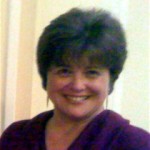 Thanks for sharing your insights and depth of experiences, Kim! Be sure to check out Kim’s work on
Thanks for sharing your insights and depth of experiences, Kim! Be sure to check out Kim’s work on 
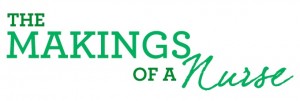

 Thanks for your personal insights and observations, Gina! Be sure to visit
Thanks for your personal insights and observations, Gina! Be sure to visit 
 Thanks for the wonderful insights, Lovlei, and good luck on completing your degree! Be sure to visit
Thanks for the wonderful insights, Lovlei, and good luck on completing your degree! Be sure to visit 
 Thanks for sharing your experiences and wisdom, Keith! Be sure to check out
Thanks for sharing your experiences and wisdom, Keith! Be sure to check out 
 Thanks for sharing your insight and experiences, rehabRN! You can read more work by rehabRN on her blog:
Thanks for sharing your insight and experiences, rehabRN! You can read more work by rehabRN on her blog:  Our series begins with a discussion with a practicing RN who uses the online name “Shrtstormtrooper” to blog freely about nursing at
Our series begins with a discussion with a practicing RN who uses the online name “Shrtstormtrooper” to blog freely about nursing at  The series continues by reaching-out to a nurse specializing in rehabilitative care who uses the online name “rehabRN” to blog freely about her nursing and experiences at
The series continues by reaching-out to a nurse specializing in rehabilitative care who uses the online name “rehabRN” to blog freely about her nursing and experiences at  The fifth entry to our series connects us to Gina Rybolt, a practicing RN with her BSN and over 14 years of nursing experiences to share. The insights Gina has offered fills her popular blog
The fifth entry to our series connects us to Gina Rybolt, a practicing RN with her BSN and over 14 years of nursing experiences to share. The insights Gina has offered fills her popular blog 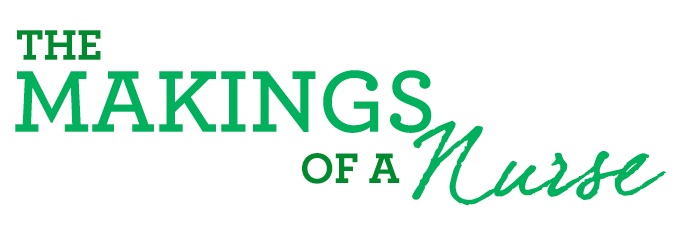 The series continues by reaching-out to Nurse Teeny, a well-known blogger who has been sharing her own journey on
The series continues by reaching-out to Nurse Teeny, a well-known blogger who has been sharing her own journey on 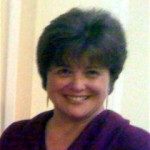 The seventh part of our series reaches out to a well-known nursing blogger named Kim McAllister who is an RN, BSN, and CEN also currently working on her Master’s. As a practicing nurse for over three decades Kim has seen a lot, and she is willing to talk openly about her experiences. Her blog
The seventh part of our series reaches out to a well-known nursing blogger named Kim McAllister who is an RN, BSN, and CEN also currently working on her Master’s. As a practicing nurse for over three decades Kim has seen a lot, and she is willing to talk openly about her experiences. Her blog  The series continues with an in-depth interview with Terri Polick, better known to the nursing community as blogger MotherJonesRN of
The series continues with an in-depth interview with Terri Polick, better known to the nursing community as blogger MotherJonesRN of  The series continues by reaching-out to Dr. Lorry Schoenly PhD, RN, CCHP who has been a nurse for 25 years and is currently specializing in correctional healthcare. She is also a clinical education specialist and blogs regularly at
The series continues by reaching-out to Dr. Lorry Schoenly PhD, RN, CCHP who has been a nurse for 25 years and is currently specializing in correctional healthcare. She is also a clinical education specialist and blogs regularly at 